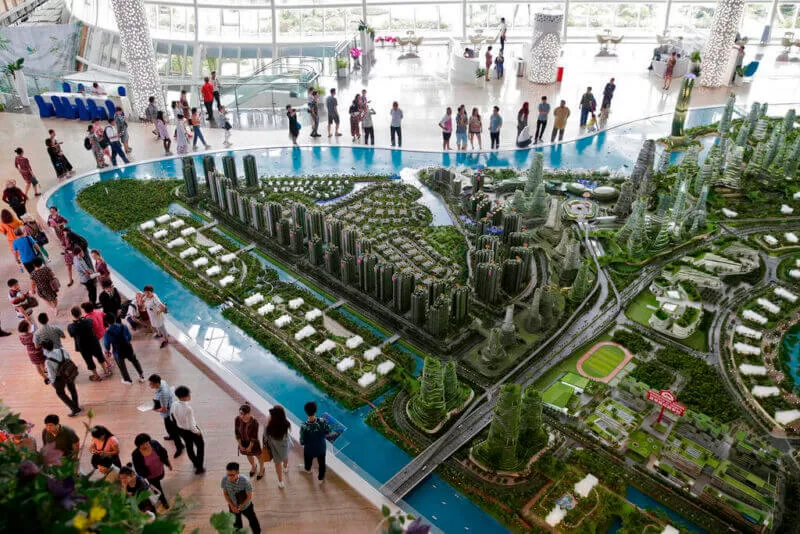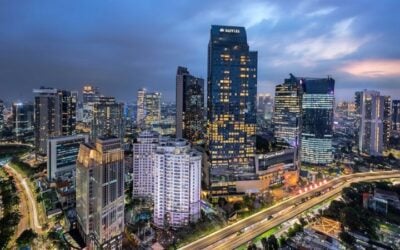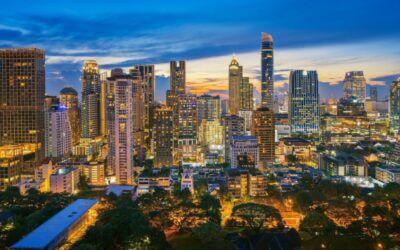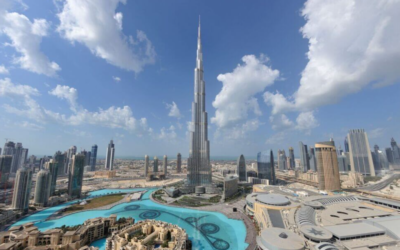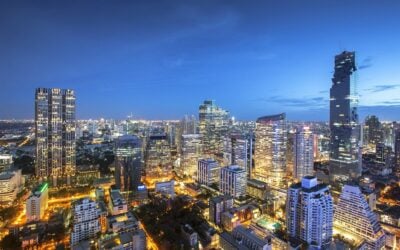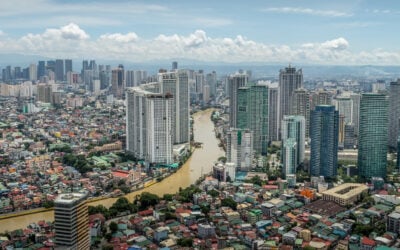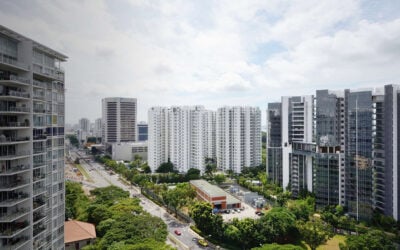Last updated November 25th, 2023.
Naturally, the demand for property investment in Asia invites less scrupulous people to come out of the woodwork to supply these supposed opportunities.
Property developers have traditionally fulfilled this role, playing on the biases of Western investors who believe that real estate is a sound investment.
However, real estate developers are “professional organizers” rather than builders. And they certainly aren’t investment experts.
Their business model instead relies on taking the difference between construction, marketing, other expenses… and the cost of the finished product that they sell to a consumer.
By nature of a developer acting as a middleman, you aren’t making an optimal investment when you purchase through one.
The goal of a developer is to make a profit – they’re not there to charitably share business opportunities with local and foreign investors. And like most types of businesses, they’ll attempt to cut costs wherever possible to maximize those profits.
We’ll cover several facts that property developers don’t want you to know. Specifically, this article serves to:
- Explain methods that large property developers use to maximize their profit.
- Show why these techniques create bad investments for you, an investor.
- Identify the worst property developments in Asia.
- Suggest alternatives, and what you should look for instead.
Buyer Beware: Cookie-Cutter Designs
Just to make a quick point, let’s forget property developers for just a bit. Imagine you’re the CEO of Apple.
The company you steward is in the process of creating a groundbreaking new phone. Millions of dollars have been put into the design and to prepare the factories to be able to produce it.
If you were to produce a single phone and never use this same design again, it would be inordinately expensive. That single phone would cost you millions of dollars, but if you produced two, that enormous price tag would be halved.
Eventually, if you produce enough of them, the R&D costs are negligible compared to the cost of labor and the capital involved in the creation of the product.
This is known as economies of scale – the more you produce of any one specific thing, the cheaper it is to produce on a per-unit basis.
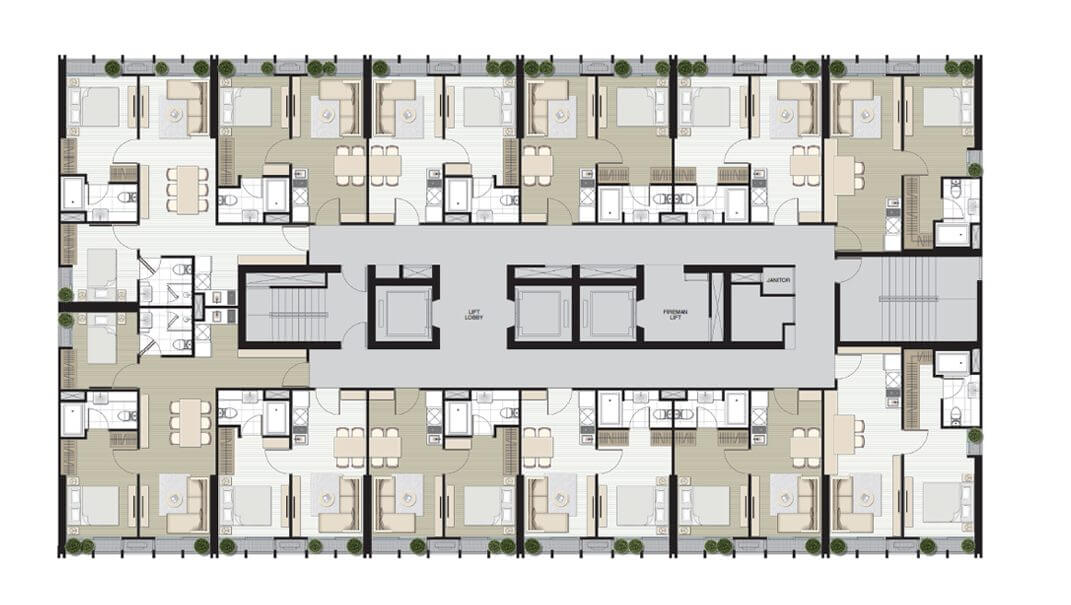
Reselling a condo gets difficult when there are hundreds of units in your building with the exact same floor plan.
The same logic applies to property developers. If you’ve bought acres of land on the cheap and you’ve paid architects and engineers to design a certain property, why wouldn’t you just copy and paste those blueprints a hundred times over?
Naturally, it looks garish to have endless rows of identical cookie-cutter designed buildings. It’s much the same utilitarian framework that made the architecture of the Soviet Union such an eyesore.
The properties might look nice in isolation as they seem modern and convenient, but average people don’t buy real estate based on pure logic.
For most of them, it’s a deeply emotional purchase. They want to feel unique and special.
As such, condos are difficult to resell. Unless you have a unique unit (like a penthouse or a home with a garden), you often end up with hundreds of condos with the same floorplan in your building.
The same concept is true for “McMansions” in developer-built communities.
As an extra fly in the ointment, you’ll have ongoing costs like maintenance, common area expenses, management/HOA fees, and sometimes higher property taxes in condos and gated communities compared to other types of housing.
The main target audience of this type of development are investors who are looking to “flip” these properties for a profit in a few years.
As such, neither governments, developers, nor even the investors are particularly interested in making these properties operationally efficient, durable, or even livable.
Lofty Goals and Minimal Results
It’s hard to overstate the speculation bubble which is happening in some areas because of unscrupulous property developers.
For instance, China has built dozens of ghost cities, which will likely have to be torn down due to safety concerns before most of the buildings are ever used.
This is hardly an isolated phenomenon. Wherever you care to look – Thailand, the Philippines, Malaysia, to name a few – there are projects of various sizes, sometimes even rivaling the size of small countries.
One example of this problem is Forest City, Malaysia, which is a US$100 billion project that is located directly across the Johor Strait from Singapore.
The idea of Forest City is to create four artificial islands and recreate what happened between Shenzhen and Hong Kong by establishing a cheap area close to a dynamic economic zone that would provide for its industrial needs.
And, of course, the goal is to become wealthy in the process.
Yet out of an estimated potential capacity of 700,000 people, there are currently around 500 people living in Forest City.
It had a rough start for the same reason most projects of this sort do – it didn’t occur organically. Some bureaucrat, property developer, or politician gets this type of idea in their head, they build it, and there are often crickets in return.
If there isn’t a market force driving people to go and work somewhere, there is no reason for them to spend the average US$175,000 to buy an apartment in a place like Forest City, Malaysia.
On a smaller scale, there’s a history of failed property developments all over the globe – abandoned beach property in areas with no infrastructure, suburban condominiums disconnected from the cities, and on and on.
Property developers will continue catering to the myths around property ownership, perpetuating the myth that you’re safe investing in a large-scale project.
At times, it almost seems foolish not to put money in them, but don’t fall for their trap.
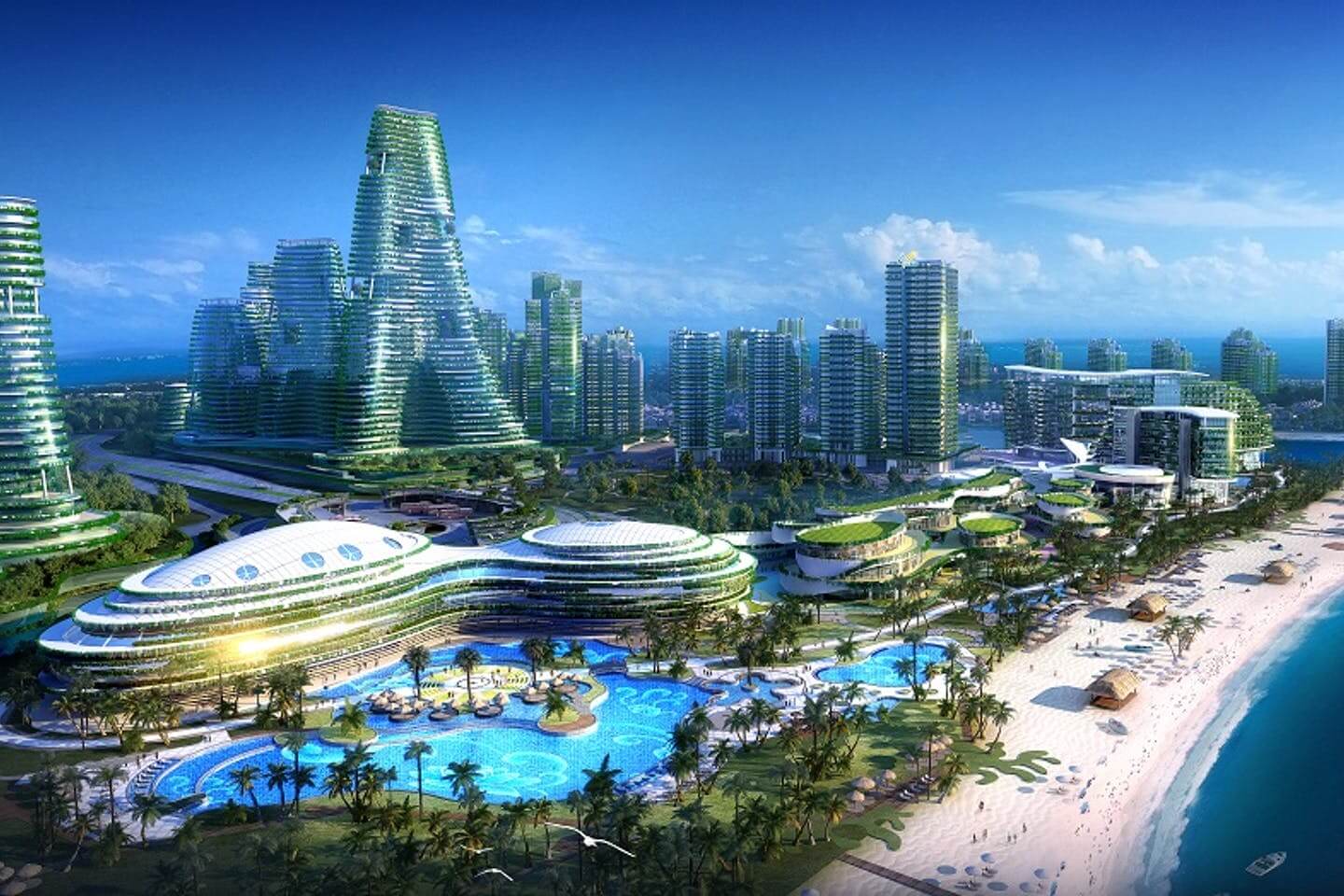
Malaysia’s Forest City, shown in the rendering above, has incredibly grand ambitions. Will they come to fruition?
Real Estate Developers in Asia? Think Carefully
We can understand the appeal of being the first to get your hands on a new property development in a growing market. It feels like you just got hold of an IPO of a flashy new business which is bound to increase in value.
But the reality of buying property from East Asian developers doesn’t quite work like that.
These projects are often built shoddily, without regard for the long-term viability of the space. As such, they are cheaply designed, reproduced en masse, and sometimes built far away from desirable locations in order to keep prices down.
At the end of the day, you’re paying extra for an expensive middleman who has a built-in incentive to overstate the desirability of what you are buying.
There often isn’t enough information to verify their claims as it’s brand new and the surrounding area is underdeveloped.
Your investment decisions shouldn’t be built around finding “a greater fool” as they say with speculative market pricing. If you engage in such practices, it’s a game of musical chairs and you may well end up with nothing to show for it.
Instead, we suggest that you invest in buildings and properties in locations with a good track record, proven performance of demand and steadily appreciating property prices.
To put it bluntly, if property developers genuinely thought they were offering good investment opportunities, they wouldn’t be spending a considerable amount of money on marketing. They would instead keep them for themselves.
In business and in life, it’s still best to trust what people do rather than what they say. And if property developers are spending a lot of money trying to convince you that you will make a lot of money, it’s worth looking elsewhere.
Skip the Next Western Recession
Learn the best places to invest - and where to avoid - by downloading our free Investment Cheat Sheet.

